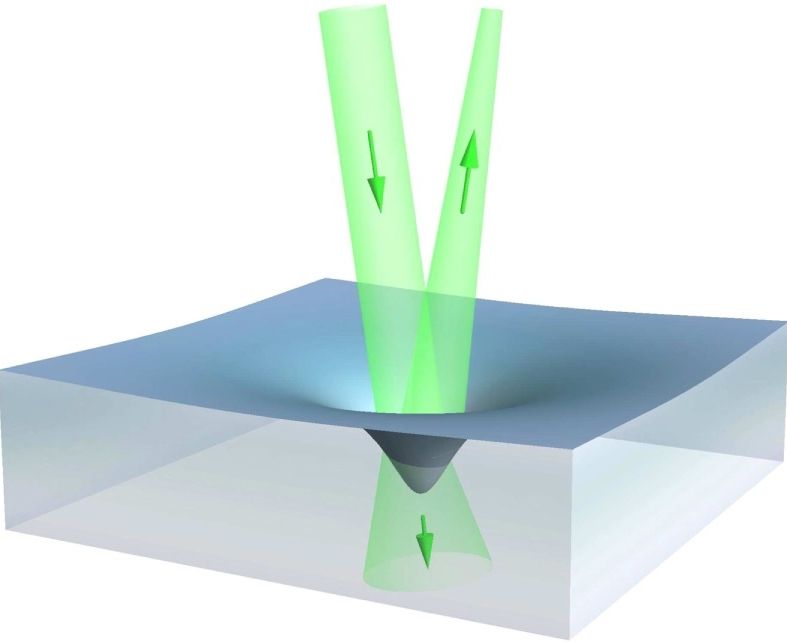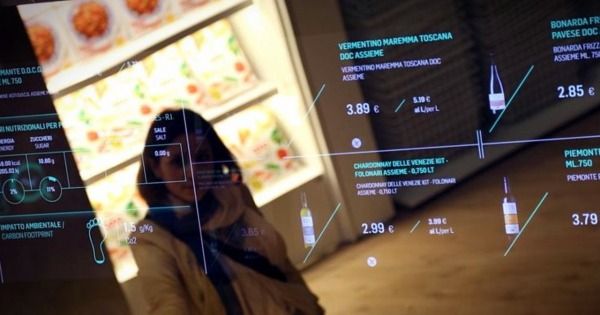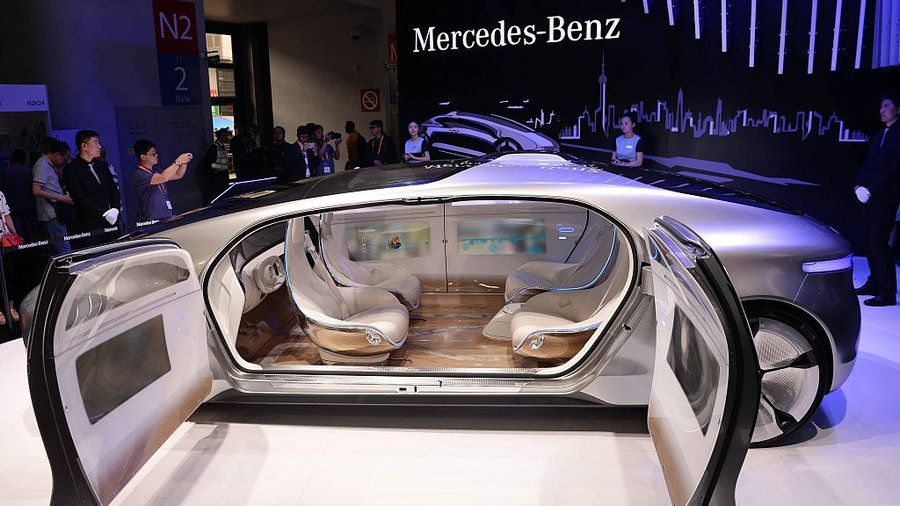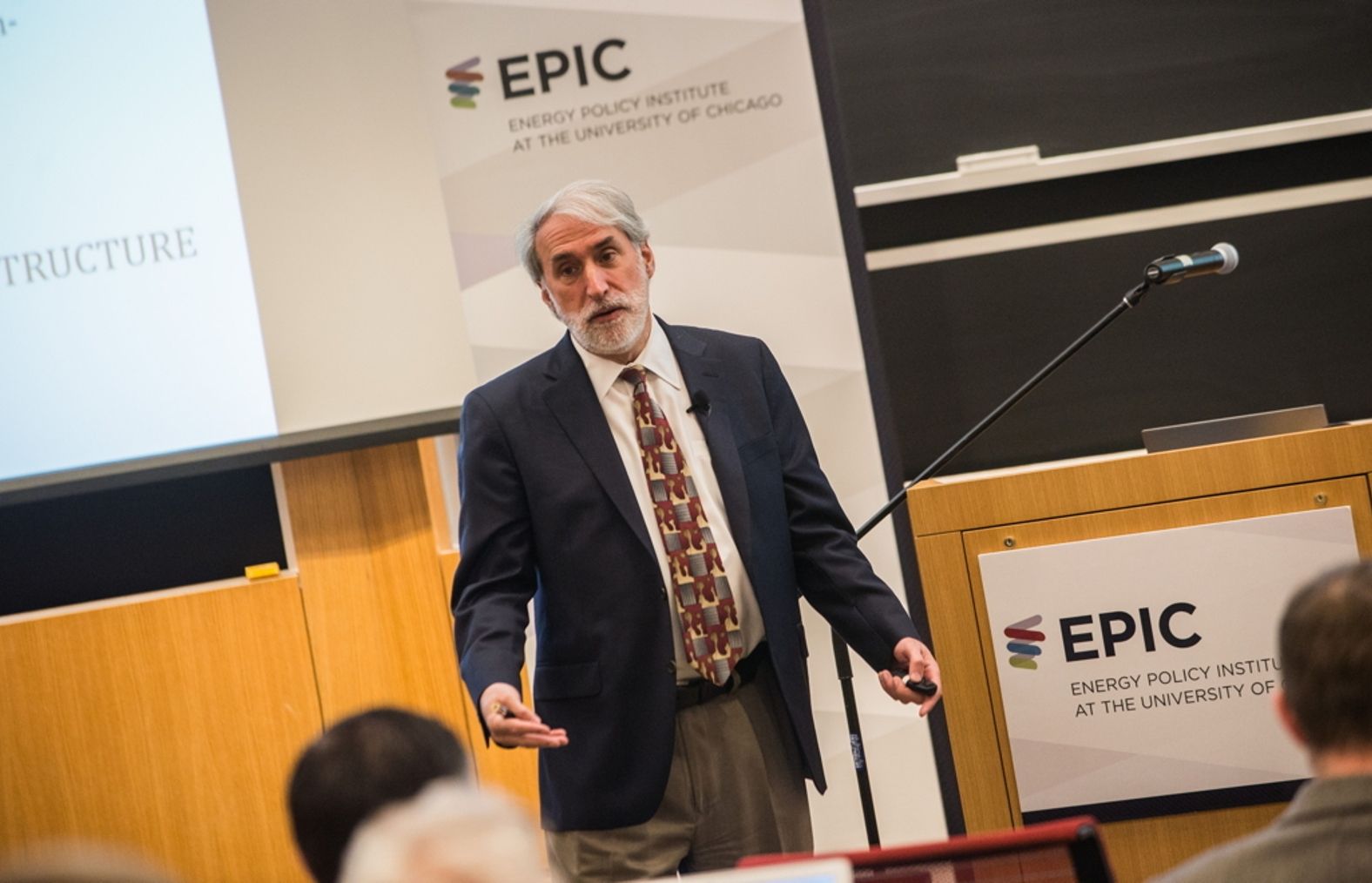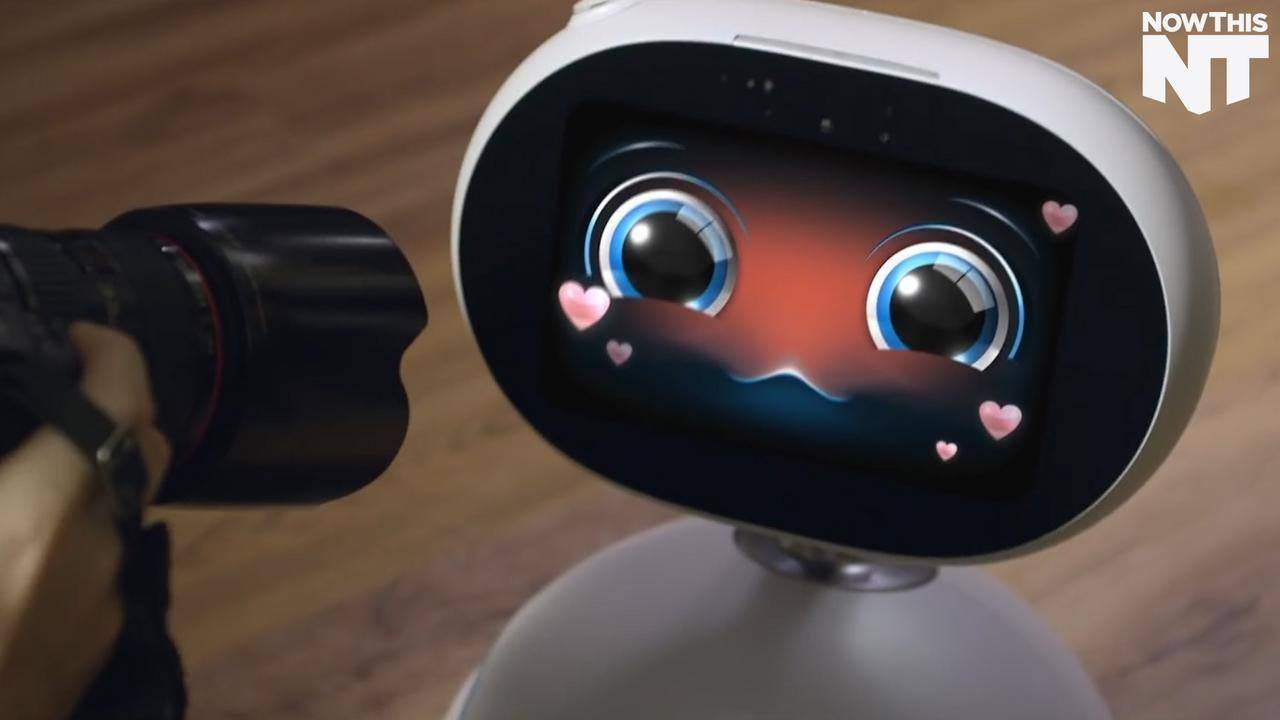Page 11510
Jun 1, 2016
Physicists make first observation of the pushing pressure of light
Posted by Shailesh Prasad in category: physics
(Phys.org)—For more than 100 years, scientists have debated the question: when light travels through a medium such as oil or water, does it pull or push on the medium? While most experiments have found that light exerts a pulling pressure, in a new paper physicists have, for the first time, found evidence that light exerts a pushing pressure.
The scientists suggest that this apparent contradiction is not a fundamental one, but can be explained by the interplay between the light and the fluid medium: if the light can put the fluid in motion, it exerts a pushing force; if not, it exerts a pulling force.
The researchers, Li Zhang, Weilong She, and Nan Peng at Sun Yat-Sen University in Guangzhou, China, and Ulf Leonhardt at the Weizmann Institute of Science in Rehovot, Israel, have published a paper on the first evidence for the pushing pressure of light in a recent issue of the New Journal of Physics.
Jun 1, 2016
What The Future Of Supermarkets May Look Like
Posted by Shailesh Prasad in categories: food, robotics/AI
This concept, by Italian designer Carlo Ratti Associati, features many futuristic designs such as transparent displays and robots boxing up your food.
Jun 1, 2016
Uber, Ford, and Google Teaming Up to Radically Change Driving Laws
Posted by Shailesh Prasad in categories: robotics/AI, transportation
With a new lobby, driverless cars could gain some legitimacy and legislation for the road. The question is whether they are good for the environment or not.
Jun 1, 2016
Genetically modified bacteria converts CO2 into liquid fuels
Posted by Shailesh Prasad in categories: bioengineering, energy, genetics, transportation
Daniel G. Nocera, the Harvard professor who made headlines five years ago when he unveiled an artificial leaf, recently unveiled his latest work: an engineered bacteria that converts hydrogen and carbon dioxide into alcohols and biomass. One can be used directly as fuel to power vehicles that run on conventional fuels, while the other can be burned for energy.
Jun 1, 2016
Watch radio controlled car that taught itself to DRIFT
Posted by Shailesh Prasad in categories: education, information science, transportation
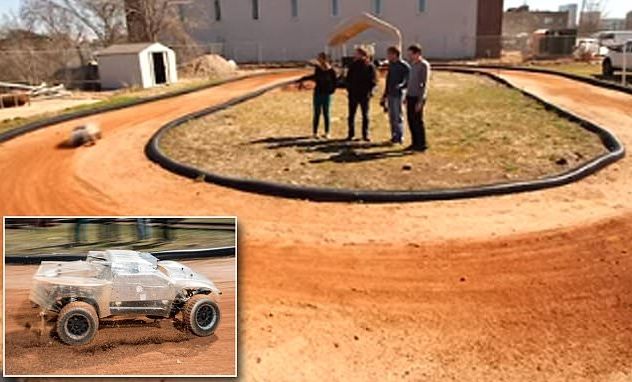
Georgia Institute of Technology developed a control algorithm that ‘taught’ 3-ft, 48lb rally cars how to plan and execute optimal handling decisions in real-time while on rough terrain.
Jun 1, 2016
Graphene That Behaves Like Water Can Pave Way For Chips That Can Model Black Hole, Supernova Behaviors
Posted by Shailesh Prasad in categories: computing, cosmology, particle physics
Researchers used high-purity graphene and observed for the first time that its charged particles behave like fluid with relativistic properties. This discovery holds promise for thermoelectric devices as well as for studying the behavior of black holes and celestial bodies.
( Peter Allen/Harvard SEAS )
Electrons in graphene appear for the first time to behave like a liquid, potentially leading to devices that can efficiently convert heat to electricity and chips that can precisely model the behavior of black holes and high-energy celestial objects.
Jun 1, 2016
Here’s why the inventor of the Internet supports basic income
Posted by Shailesh Prasad in categories: economics, employment, internet, robotics/AI
With the robot economy looming large in the coming decades, one solution to vanishing jobs may simply be to give people money regardless of whether or not they work.
That idea is called “basic income,” and it just gained the support of one of the tech world’s founding fathers, Internet inventor Tim Berners-Lee.
“I think a basic income is one of the ways of addressing massive global inequality,” Berners-Lee, who founded the Web in 1989, explained on a recent episode of The Economist podcast.
Continue reading “Here’s why the inventor of the Internet supports basic income” »
Jun 1, 2016
Forget self-driving cars: What about self-flying drones?
Posted by Shailesh Prasad in categories: drones, robotics/AI, transportation
While all the focus has been on autonomous vehicles, one Belgian startup has been busily developing self-flying features for drones.

